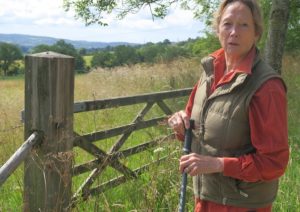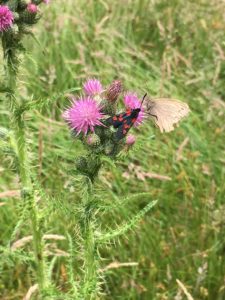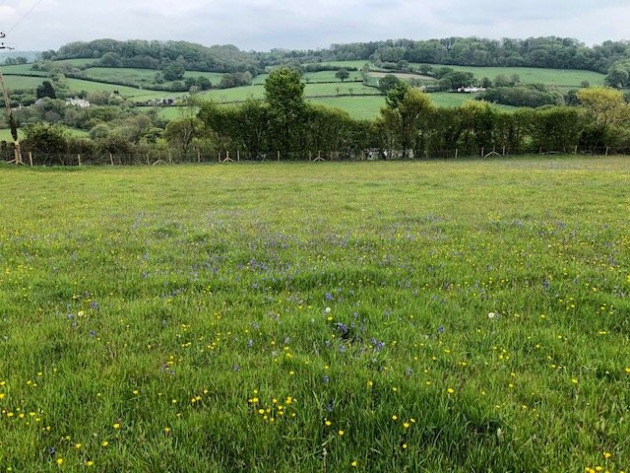Wildflower meadows in the Yarty Valley displaying all their glory.
.
The Sid Valley Biodiversity Group has just launched its first presence online:
Sid Valley Biodiversity – Home | Facebook
And it is featuring the regular weekly column from the Group in the Herald.
Here’s the latest, republished here with permission:
.
Sid Valley Biodiversity Group report: Wildlife secured from generation to generation

The Sid Valley Biodiversity Group contributes regular reports on its activities. Here. its publicity officer Charles Sinclair describes a visit to a farm that has been a wildlife haven for generations.
Walking through the numerous flowers in a mature meadow is enchanting and the attempts to capture great photos of the insects, well, usually left unresolved.
I met Bronwen Gundry at her farm near Axminster when her wildflower meadows were displaying all their glory. With only one percent of meadows left covering the UK, this was a treat. Bronwen and her family have been working this land for three generations and each generation has valued and protected the flora and fauna on the farm.
“This hayfield has been like this since the early 1970s, when my parents first harvested the hay, it has never had any artificial fertiliser on it.”
This is now a mature wildflower meadow, a rare and biodiverse habitat that brims with life. She led me around, detailing the characteristics of each area, clearly displaying an intimate knowledge of the land.

“The sheep are taken off the land at the beginning of April and the hay is then cut mid-July, that gives the plants the time they need to grow, flower and seed and the insects to breed. So we can help wildlife, take a hay crop and graze the rest of the year. This works for people and wildlife.”
Amongst the many species we saw were marbled white butterflies, six-spot burnet moths and common spotted orchids; they might have been common once, says Bronwen.
In total there are three wilded areas within their farm, some established or untouched from her parents’ time, and another two which she is developing herself with the health of the environment uppermost in her mind. Recent support for wildlife farming has reinforced her resolve. Examples such as the Knepp Estate in Sussex, which has become a beacon for biodiversity is a particular inspiration, and she is now turning her attention to the Government’s new agricultural policy, appropriately titled ELMS (Environmental Land Management Scheme). Could this new policy mean for the next generation such a meadow experience is much more common?
Meanwhile, whatever the policy future for farming and wildlife, Bronwen continues caring for the land she loves. We walk through the Oak Tree Field where she is planting native species trees this year to create additional habitat, and I am introduced to a flower I have never even heard of before, the corky fruited water dropwort; worth saving just for the name!

.
Sid Valley Biodiversity Group report: a farm protecting wildlife for generations | Sidmouth Herald